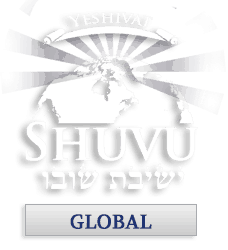שֹֽׁפְטִ֣ים וְשֹֽׁטְרִ֗ים תִּתֶּן־לְךָ֙ בְּכָל־שְׁעָרֶ֔יךָ אֲשֶׁ֨ר יְהֹוָ֧ה אֱלֹהֶ֛יךָ נֹתֵ֥ן לְךָ֖ לִשְׁבָטֶ֑יךָ וְשָֽׁפְט֥וּ אֶת־הָעָ֖ם מִשְׁפַּט־צֶֽדֶק: לֹֽא־תַטֶּ֣ה מִשְׁפָּ֔ט לֹ֥א תַכִּ֖יר פָּנִ֑ים וְלֹֽא־תִקַּ֣ח שֹׁ֔חַד כִּ֣י הַשֹּׁ֗חַד יְעַוֵּר֙ עֵינֵ֣י חֲכָמִ֔ים וִֽיסַלֵּ֖ף דִּבְרֵ֥י צַדִּיקִֽם: צֶ֥דֶק צֶ֖דֶק תִּרְדֹּ֑ף לְמַ֤עַן תִּֽחְיֶה֙ וְיָֽרַשְׁתָּ֣ אֶת־הָאָ֔רֶץ אֲשֶׁר־יְהֹוָ֥ה אֱלֹהֶ֖יךָ נֹתֵ֥ן לָֽךְ:
You shall set up judges and law enforcement officials for yourself in all your cities that the Lord, your God, is giving you, for your tribes, and they shall judge the people [with] righteous judgment. You shall not pervert justice; you shall not show favoritism, and you shall not take a bribe, for bribery blinds the eyes of the wise and perverts just words. Justice, justice shall you pursue, that you may live and possess the land the Lord, your God, is giving you.
Devarim 16:18-20
This week’s Torah portion, Judges, instructs us to set up a system of police, law enforcement, and judges, law adjudication. There is a timely message here regarding funding the police rather than defunding the police, but that is for another time. Judges and law enforcement are to be set up and justice is not to be perverted.
There are two different words here that are both translated as justice. The Hebrew terms are actually quite different in meaning, even though both can be translated as justice. In verse 19, we see the word מִשְׁפָּ֔ט. Mishpat more literally means the execution of judgment. Whereas in verse 20, the term translated as justice is צֶ֖דֶק. Tzedek means righteousness, which includes justice, but is not limited to justice. Justice is a term that is used in disputes between people. Righteousness is a term that not only includes the solution of disputes between people, it also includes the idea of acting according to Hashem’s instructions.
In other words, refraining from work on Shabbat would be considered righteousness, but it would not be considered justice. The juxtaposition of these terms in such close proximity within the Torah is instructive. We are told to select judges and law enforcement officers, and we are told, righteousness, righteousness, you shall pursue. This proximity shows us that the judges are not only to settle disputes between people, they are also to unify our understanding and performance of Hashem’s commandments. The judges are to interpret justice between people and righteousness of G-d’s commandments. In this way Israel can fulfill the mitzvah of performing Hashem’s mitzvot, together as a nation. Otherwise, each one of us could do what was right in our own eyes, that is, our own individual understanding of how to do the mitzvot. We are clearly instructed not to do this. Numbers 15:39 instructs us that we are not to follow after our own eyes and own heart. We are to select judges from among the people to settle disputes regarding Hashem’s mitzvot so that we may practice Hashem’s mitzvot together in righteousness. Shabbat shalom.
